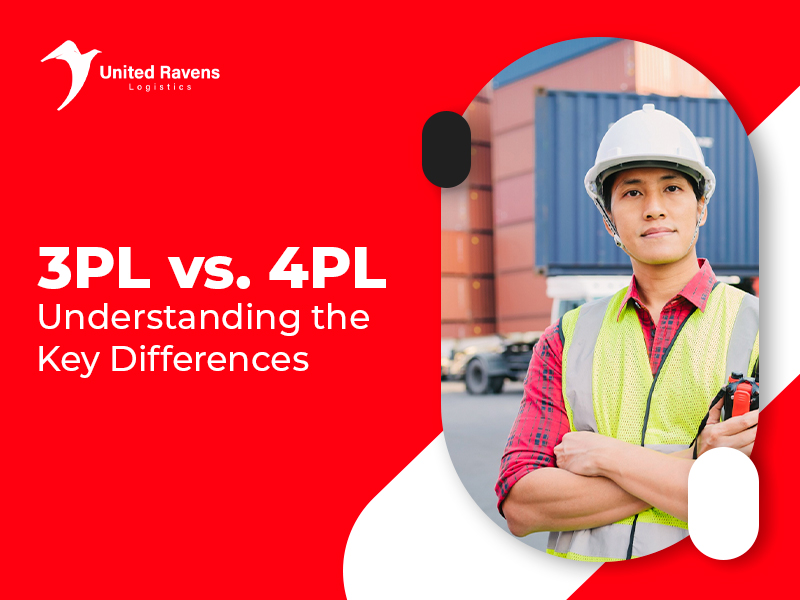3PL, which stands for third-party logistics, involves transporting goods from the pickup location to the destination. A 4PL, or fourth-party logistics, covers the entire supply chain and plays a broader role. 3PL vs 4PL both help optimize your logistics operations, but these still have some differences. In this blog, we will understand what 3PL is, what 4PL is, and the difference between 3PL and 4PL in detail. We will also conclude which of the two can serve your business as a better logistics service provider. So, let’s get started!
What is 3PL?
A 3PL, or “third-party logistics” provider, is like outsourcing your logistics operations to an external partner. It involves three parties: the carrier business, the shipper, and the logistics provider, which is the 3PL in between. The 3PL providers offer basic transportation services like load assignment, route optimization, load pickup & delivery, and order paperwork.
The main aim of 3PL providers is to offer your business efficient transportation services. From delivery routes to coordinating shipments and providing real-time updates, a 3PL services provider works on each aspect of logistics. By leveraging third-party logistics services into your business, you get to focus more on other aspects of your business, such as driving or providing salaries to the employees.
What is 4PL?
4PL, or “fourth-party logistics” provider, is a step higher than 3PL services. This means that the 4PL providers offer the 3PL providers some additional services. A 4PL typically focuses on the entire logistics operation. The 4PL provider looks after a bundle of operations, including warehousing, vendor management, and even the management of multiple 3PLs. In 4PL, the manufacturer generally outsources its entire logistics operations.
A 4PL service provider offers various services, including additional management and coordination. They work with not just a single carrier but multiple carriers to provide efficient solutions. The 4PL providers have robust experience and expertise in managing your logistics operations.
3PL vs 4PL: Point of Differences Between 3PL and 4PL
The main difference between a 3PL and a 4PL is that one manages the basic logistics functions while the other oversees the entire supply chain, respectively. Let us learn about some more differences between the two from the table below:
|
Difference |
3PL |
4PL |
|
Meaning |
A 3PL, or third-party logistics company, offers outsourced logistics services like load assignment, pickup, and delivery |
A 4PL or fourth-party logistics company, manages the entire supply chain on behalf of the client |
|
Services Offered |
Inventory management, Picking, Shipping, Load Assignment |
3pl services + Technology+ Infrastructure+ Strategic Insights |
|
Focus |
Focuses on day-to-day operations like assigning loads to carriers, optimizing routes, picking, delivery, shipping goods |
Focuses on the entire supply chain, including transportation, technology, and strategies |
|
Assets |
Often owns assets |
Non-asset based |
|
Pros |
Risk Mitigation, Efficient Transportation, Cost Savings |
Expertise, Scalability, Innovation, Visibility, Cost Savings |
3PL vs 4PL: Which is a Better Logistics Service Provider?
Having understood the key differences between 3PL and 4PL service providers, you might consider which one to choose for your business. This will depend on your business’s type, size, complexity, cost, and how much control you want to maintain. For instance, small businesses with less complexity in their supply chain can opt for a 3PL. On the other hand, companies that have complexities and require a comprehensive approach should opt for a 4PL service provider.
Talking about cost, a 4PL service provider will generally charge more because of their wide range of services. If you have a reasonable budget and wish to give all your logistics operations burden to an outsourced partner, a 4PL can be the best choice.
Considering the control aspect, if you want your involvement in the supply chain operations, then a 3PL provider can be a good choice. But, if you do not have much control over the operations and want to let the external logistics services or 3PL services handle it all, then a 4PL is better.
Wrapping Up
Suppose you are a business struggling to handle your logistics operations efficiently and effectively. It’s time to partner with an outsourced provider. Generally, these outsourced providers are of many types, such as 2PL, 3PL, 4PL, 5PL, and so on. Choosing the right logistics provider depends on your business requirements and personal needs.
The main types of service providers those businesses generally leverage are 3PL and 4PL. Both service providers offer advantages like cost savings, scalability, flexibility, and much more. So, leverage the expertise of a 3PL or 4PL service provider into your business now!

